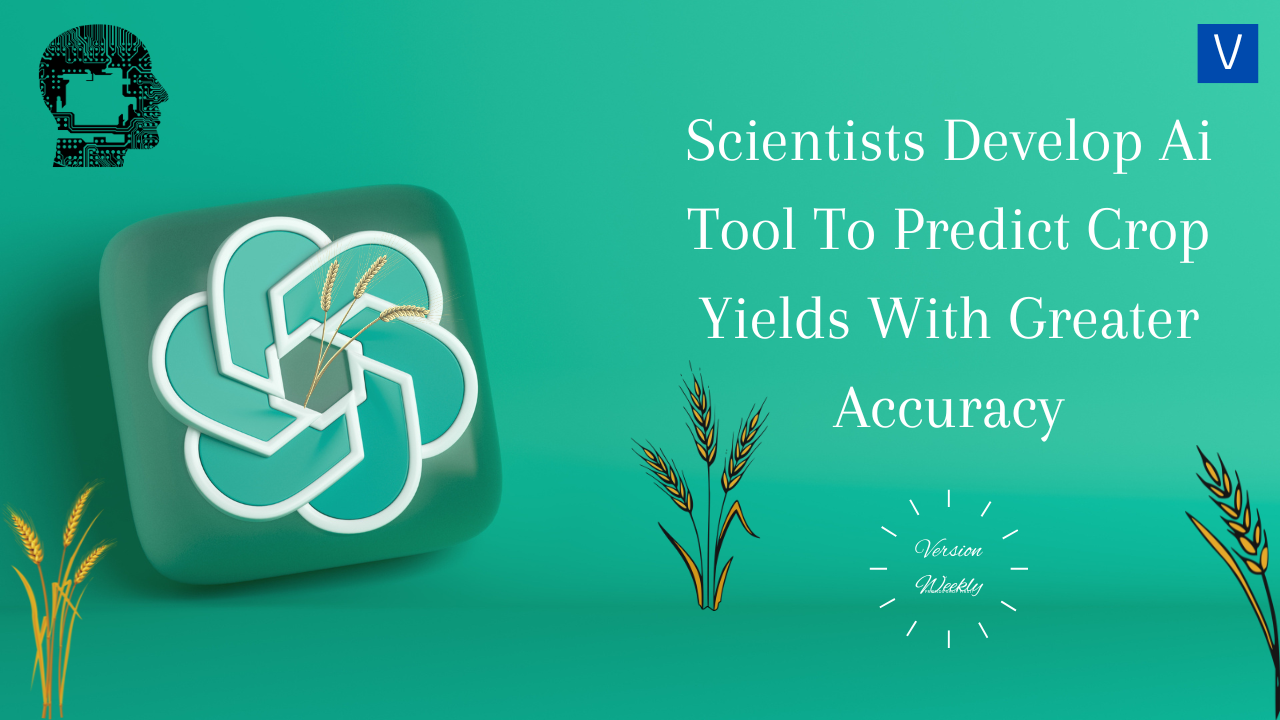Scientists Develop AI Tool To Predict Crop Yields With Greater Accuracy: Artificial intelligence (AI) is rapidly emerging as a powerful tool for solving complex problems in a variety of fields, including agriculture. In recent years, AI has been used to develop new tools and technologies that can help farmers improve crop yields, reduce food waste, and make better decisions about how to manage their land.
One of the most promising applications of AI in agriculture is crop yield prediction. Crop yield prediction is the process of estimating how much food a crop will produce. This information can be used by farmers to make better decisions about how to plant and manage their crops, such as when to plant, how much fertilizer to apply, and when to harvest.
Who Developed This Work
A team of scientists from Zhejiang University and risk-management company Tongdun Technology have developed a new AI tool that can predict crop yields with greater accuracy than existing methods. The team was led by Professor Wei Chen from Zhejiang University.
The AI tool developed by scientists from Zhejiang University and risk-management company Tongdun Technology is currently being used in India. The tool is being used by a number of farmers in the states of Punjab, Haryana, and Uttar Pradesh. The tool has been shown to be effective in predicting crop yields with greater accuracy than traditional methods. It has also been shown to be helpful in identifying areas that are at risk of crop failure.
How The Tool Works, And Benefits
The tool uses data from satellites and weather stations to track the growth of crops and identify factors that could affect yield, such as weather conditions, pests, and diseases. The data is then used to train an AI model that can predict crop yields for future seasons. The new AI tool has the potential to revolutionize crop yield prediction.

It is more accurate than existing methods, and it can be used to predict crop yields for a wider range of crops and locations. This could help farmers improve their crop yields by up to 10%, and it could also help them reduce their risk of crop losses due to weather events or pests.
The Future Of Crop Yield Prediction
The development of the new AI tool is a significant step forward in the field of crop yield prediction. The tool has the potential to help farmers improve their crop yields and reduce their risk of crop losses. As AI technology continues to develop, it is likely that even more accurate and sophisticated crop yield prediction tools will be developed in the future.
Here are some other companies in India that are developing and using AI for agriculture:
CropIn: CropIn is a Bengaluru-based company that uses AI to help farmers with crop planning, monitoring, and advisory services.
Naïo Technologies: Naïo Technologies is a French company that develops autonomous robots for agriculture.
SimpliFarm: SimpliFarm is a Noida-based company that uses AI to help farmers with crop management, pest control, and irrigation.
These are just a few examples of the many companies that are using AI for agriculture in India. As AI technology continues to develop, it is likely that we will see even more innovative and effective ways to use AI to improve crop yields and food security.
Conclusion
The development of the AI tool is a promising development for the agriculture industry. The tool has the potential to help farmers improve their crop yields and reduce their risk of crop losses. As the tool continues to be developed and refined, it could become a valuable tool for farmers around the world.
FAQs On Scientists Develop AI Tool To Predict Crop Yields With Greater Accuracy
Question 1.
How does the AI tool work?
Answer:
The AI tool uses data from satellites and weather stations to track the growth of crops and identify factors that could affect yield, such as weather conditions, pests, and diseases. The data is then used to train an AI model that can predict crop yields for future seasons.
Question 2.
What are the benefits of the AI tool?
Answer:
The AI tool has the potential to revolutionize crop yield prediction. It is more accurate than existing methods, and it can be used to predict crop yields for a wider range of crops and locations. This could help farmers to improve their crop yields by up to 10%, and it could also help them to reduce their risk of crop losses due to weather events or pests.
Question 3.
How is the AI tool being used in India?
Answer:
The AI tool is currently being used by a number of farmers in the states of Punjab, Haryana, and Uttar Pradesh. The tool has been shown to be effective in predicting crop yields with greater accuracy than traditional methods. It has also been shown to be helpful in identifying areas that are at risk of crop failure.
Question 4.
What are the challenges of using AI for crop yield prediction?
Answer:
One of the challenges of using AI for crop yield prediction is the availability of data. The AI model needs to be trained on a large dataset of historical crop yield data, as well as data on weather conditions, pests, and diseases. This data can be difficult and expensive to collect.
Another challenge is the complexity of the factors that affect crop yield. There are many factors that can affect crop yield, such as the weather, the type of soil, the amount of fertilizer used, and the presence of pests and diseases. The AI model needs to be able to take into account all of these factors in order to make accurate predictions.
Question 5.
What is the future of AI for crop yield prediction?
Answer:
The future of AI for crop yield prediction is promising. As AI technology continues to develop, it is likely that we will see even more accurate and sophisticated crop yield prediction tools being developed. These tools could help farmers to improve their crop yields and reduce their risk of crop losses.
